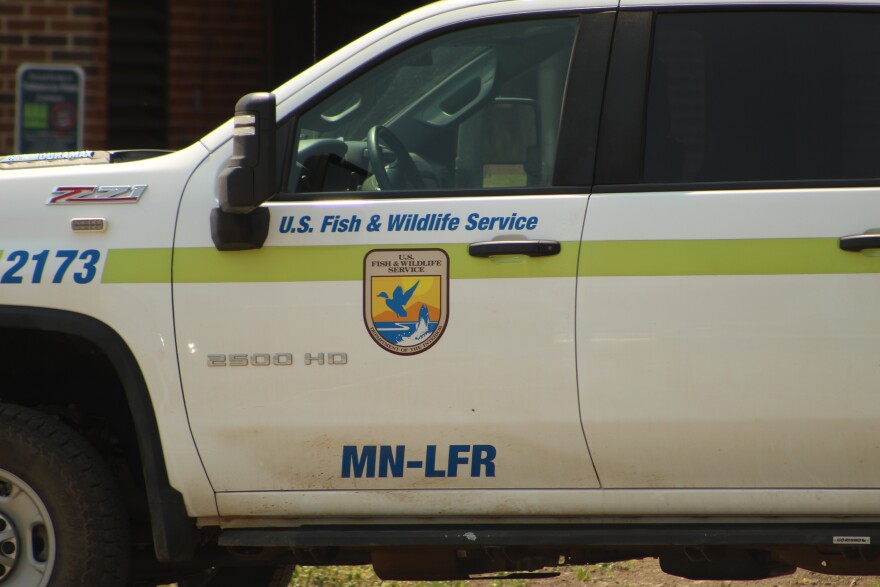WASHINGTON DC — Fish and Wildlife staff in the Minnesota Department of Natural Resources told federal auditors they felt pressure to meet timber harvest targets, regardless of the impact on wildlife habitat.
The observation is the latest in a years-long concern that the agency is prioritizing logging over wildlife. The U.S. Fish and Wildlife Service previously withheld grant dollars because of the issue.
A routine audit by the Department of Interior Office of the Inspector General, published July 30, looked at Fish and Wildlife Service Wildlife and Sport Fish Restoration Program grants given to the state between 2021 and 2023.
The report said the DNR did use grant funds appropriately. But it also highlighted past concerns of competing priorities within the agency.
In 2023, the Fish and Wildlife Service paused grant funds after concluding the state violated grant conditions.
Logging on publicly owned wildlife and aquatic management areas must be done primarily to improve wildlife habitat, the Minnesota Reformer reported at the time. The DNR wasn't recording the habitat purpose of its timber sales.
The two sides reached an agreement two months later, and the funds were released, according to the recent audit.
A 2020 draft monitoring report from the Fish and Wildlife Service noted that DNR Forestry staff were logging on wildlife management areas with limited input from DNR Fish and Wildlife staff.
That report was not finalized because of the agreement, something the DNR highlighted in a statement responding to the audit. But the Fish and Wildlife Service did require the DNR to submit additional documentation before logging. Its failure to do so resulted in the 2023 grant pause.
The new audit said Fish and Wildlife staff had valid concerns, as supported by the auditor’s own interactions with DNR area wildlife supervisors.
"Most of the FAW [Fish and Wildlife] Division area wildlife supervisors and coordinators we contacted stated that they felt the Department Commissioner and leadership prioritized meeting timber industry cordage targets, which is a Forestry Division objective, over maintaining wildlife habitat for the maximum production of a variety of wildlife species," the audit said.
"This created the appearance that the Forestry Division had more control over the process and outcome.
" ... FAW [Fish and Wildlife] staff indicated that they felt they did not have the ability to deny harvests on WMAs [wildlife management areas] and felt pressure to meet cordage targets.
The DNR told the auditors that timber harvests on wildlife management areas benefited wildlife habitat, which they also said in 2023.
In response to the report, the DNR said the past issues were addressed in the previous agreement. The agency also said the auditors did not include interviews with other staff involved in grant-funded work, like those in Forestry and Ecological and Water Resources.
"We took time to hear from staff from all three divisions, and we have those internal cross-divisional conversations regularly as we make progress on the CIAP," the DNR said.
"In fact, the OIG made a point to praise the DNR’s work to enhance operational collaboration among its divisions in accordance with our interdisciplinary forest management framework."
The CIAP is the Forest Coordination Continuous Improvement Action Plan. The auditors noted it in their report but didn’t review the effort.
According to the DNR, the plan started in early 2024.
"That process improved our collective understanding that forest coordination experiences on the ground were not always aligned with what our policies intend," the DNR said.
"We continue to make the necessary improvements to address this gap through the CIAP process.
The audit also briefly noted that the DNR used $109,000 of grant funding to pay for the state's unfunded pension liabilities, which is about 0.41% of the grant.
The issue was previously noted in another advisory from the auditors, and they said the Fish and Wildlife Service is working to address the issue, which the DNR said is a "broader national" problem.
Environmental groups highlighted the audit’s flagging of the logging issue.
In a news release, CURE and Public Employees for Environmental Responsibility urged the state to adopt a more habitat-driven approach to logging.
"The release of this audit follows growing grassroots concern over increased timber activity in Minnesota’s WMAs, with residents, biologists, and former agency staff raising red flags over habitat fragmentation and species impacts," the release stated.
"Today’s report not only vindicates those voices — it signals the need for reform."
-
In the new picture book “The Blue House I Loved” Minnesota author Kao Kalia Yang shares vivid memories of childhood and place. Illustrated by artist and architect Jen Shin.
-
Events this week include a pancake fundraiser and curling watch parties in Grand Rapids, "MusiKaravan" in Hibbing, Bemidji Contra Dance and a symphony orchestra concert in Virginia.
-
Plus: Northern, MN to become Northern MN's newest city; and 14 Northland athletes competed in the Alpine Ski state tournament Feb. 10, 2026.
-
Bryan Odeen and Brandon Hepola, two of the organizers of a new benefit album for a Minnesota mutual aid group, joined "Headwaters" to talk about the project.












